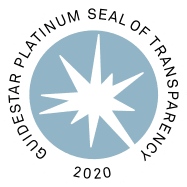His biography
Born on August 20, 1935, Ronald Ernest Paul is a retired American politician, author, and presidential candidate. He served several terms in Congress from 1976 to 2013, representing various congressional districts in Texas. In 1988, he was the Libertatrian Party’s nominee for the Presidency of the United States, and in 2008 and 2012, he was a candidate in the Republican primaries.
Ron Paul grew up in Pittsburgh. He earned a bachelor’s degree in biology from Gettysburg College in 1957, and a medical degree from Duke University in Durham, North Carolina, in 1961. He served as a flight surgeon for the U.S. Air Force and Air National Guard between 1963 and 1968. After this, he moved to Texas where he established a successful practice in obstetrics and gynecology.
In the 1970s, he was inspired to enter politics after the Bretton Woods exchange system was abolished, eventually entering the House of Representatives in 1976. Ron Paul credits his political leanings to influential authors and economists such as Friedrich Hayek, Ludwig Von Mises, Ayn Rand, and Murray Rothbard.
During his tenures as a representative, Paul argued extensively for many pro-liberty policies and heavily criticized the Federal Reserve for inflation and banking mismanagement that led to the 1980s savings and loans crisis. In 1987, he left the Republican Party and became the Libertarian Party’s nominee for the 1988 presidential election. He would later return to the House of Representatives and compete in the Republican primaries of 2008 and 2012. In the 2016 elections he received one electoral vote, making him the second Libertarian Party candidate to receive electoral votes after John Hospers in 1972.
After deciding to retire in 2013, Ron Paul remained active as a speaker, author and a prominent advocate of libertarian ideas.
Why he matters?
With decades of experience and a long political career, Ron Paul is indeed a person whose opinion is worth listening to. His political life was vibrant and his congressional speeches and activities have reflected strong libertarian principles.
His campaigns and activism were accompanied by large online presence, and he still remains active online with his YouTube channel and blog. As a candidate and representative, Paul used his platform to spread the ideas of liberty and to influence the next generation of pro-liberty leaders.
Even outside political involvement, Ron Paul became an important presence in the libertarian movement, working on making the ideas of pacifism, sound economic policy and fiscal conservatism gain traction among wider audiences. He started the Foundation for Rational Economics and Education, was the first chairman of Citizens for a Sound Economy, and is a prominent advocate for the Austrian School of economics.
Favorite quote
“The most important element of a free society, where individual rights are held in the highest esteem, is the rejection of the initiation of violence.”
Major works
- Freedom Under Siege (1987)
- A Foreign Policy of Freedom (2007)
- The Revolution: A Manifesto (2008)
- End the Fed (2009)
- Liberty Defined (2011)
For further information
- Ron Paul’s rEVOLution: The Man and the Movement He Inspired, by Brian Doherty, 2012
- Ron Paul Uprising, a 2012 film by Wiliam Lewis
If you are interested in learning more about the ideas of liberty, please check out our upcoming online events by clicking on the button below.
This piece solely expresses the opinion of the author and not necessarily the organization as a whole. Students For Liberty is committed to facilitating a broad dialogue for liberty, representing a variety of opinions.

















